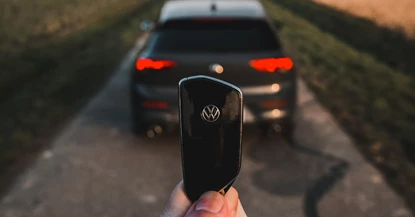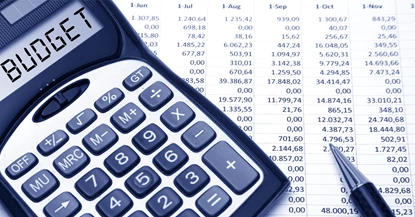Car leasing has become a popular alternative to purchasing vehicles outright, offering flexibility and lower monthly payments. But whether you’re considering leasing a car for the first time, moving away from personal contract purchase (PCP) or hire purchase (HP), or even upgrading to a newer model, it’s crucial to understand how this decision impacts your credit score.
So, does leasing a car affect your credit score? In this article, Stable Vehicle Contracts is going to break it down and go into full detail about whether or not car leasing makes a difference to your credit score.
There are several chapters in this article which are as follows:
- The basics of leasing a car
- How leasing a car affects your credit rating
- The impact of car leasing on your credit score
- Secondary effects of leasing a vehicle
- Leasing vs buying: Credit score implications
- Expert insights from Experian
- Final word
What is Car Leasing?
First things first, leasing a car is an increasingly popular option for drivers who want to enjoy the latest models without committing to a long-term purchase. Unlike buying a car outright, leasing involves paying a monthly fee to use the vehicle for a specified period, usually two to four years. This arrangement can offer benefits such as lower monthly payments and the opportunity to upgrade to a new model more frequently. However, it raises an important question: does leasing a car affect your credit rating? Let's delve into this question and explore how your credit score might be impacted by choosing to lease a vehicle.

How does Car Leasing work?
Leasing a car means you're essentially renting it for a specific period, typically between two to four years. Unlike buying, where you eventually own the vehicle outright, leasing involves making monthly payments to use the car within certain agreed-upon limits, like mileage restrictions and wear-and-tear guidelines.
When you lease a car, you're essentially paying for the depreciation that occurs during your lease term, plus interest and any fees. This often results in lower monthly payments compared to financing a car purchase. However, at the end of the lease, you either return the car to the dealer, extend the lease, or lease a new model. There's also generally an option to buy the car, albeit at a predetermined price.
One significant difference between leasing and buying a vehicle is ownership. When you buy, it becomes your asset once the loan is paid off. Leasing doesn't confer ownership, but it does offer the allure of driving a new car every few years without a long-term commitment. Another difference lies in equity. When buying a car, your payments build equity. Leasing, however, builds no equity as you're not working toward owning the vehicle.
Overall, leasing a car might be ideal if you prefer lower monthly payments, enjoy driving a new vehicle every few years, and don’t mind adhering to mileage limits or returning the vehicle in good condition. But remember, leasing contracts can be restrictive, and exceeding mileage limits or returning a car in poor condition can incur additional charges. So, it's vital to weigh these factors against your personal needs and financial situation before deciding whether leasing is the right move for you.

How Leasing a Car Affects Your Credit Rating
Initial Credit Check
When you apply for a car lease, the leasing company will perform a hard inquiry into your credit history. This initial credit check is essential for the company to determine your creditworthiness. Essentially, they're assessing your financial stability and ability to meet monthly payments.
A hard inquiry can cause a slight dip in your credit score, typically by a few points. However, this effect is usually short-lived, often lasting only a few months. It’s a normal part of the process and a minor concern provided your overall credit behaviour remains stable.
Any process that involves a hard check on your credit score will slightly affect your overall score negatively. This is anything from mortgaging a house, getting a bank loan or even financing smaller items like clothing. There are also soft credit checks but leasing a car would only involve a hard check. Lloyds Bank goes into more detail regarding soft and hard checks here.
Monthly Payments & Credit Utilisation
Once you're approved and you start making your monthly lease payments, these transactions become part of your credit report. This ongoing record can positively or negatively influence your credit utilisation ratio, which is the amount of credit you're using relative to your total available credit.
Timely payments are crucial here. Regular, on-time payments will show lenders that you are reliable, which can help boost your credit score over time. Conversely, missed or late payments can have a detrimental effect, signalling financial instability. The importance of punctuality cannot be overstated; it’s perhaps the single most significant factor within your control.
Leasing A Car & Credit History
Leasing a car contributes to your credit history by adding a new layer to your credit profile. This new addition can indicate to future lenders that you're capable of handling varying types of credit responsibly. Over time, this can improve your credit score, particularly if your report shows a history of on-time payments.
Moreover, a well-managed car lease can help lengthen your credit history, which is another critical factor in determining your credit score. Long-term, positive credit behaviour, such as successfully completing a car lease, can lead to a stronger credit profile.
Through the lease, you're essentially building a consistent credit history, which is invaluable for maintaining a healthy credit score. Keep in mind that every financial decision impacts your creditworthiness, and leasing a car is no exception.

The Impact of Car Leasing on Credit Score
Leasing a car can affect your credit score in various ways across the different stages of the lease term. Here's a breakdown of what you can expect:
Initial Lease Application
- Hard Inquiry: When you initiate a car lease, the leasing company will perform a hard inquiry into your credit report. This initial credit check might cause a slight dip in your credit score, albeit typically temporary.
- New Account: After this check, assuming your credit is approved and the lease goes through, you’ll see an additional account appear on your credit report. This new account signifies a new financial obligation, which can affect your credit score depending on your existing credit profile.
During the Lease Term
Monthly Payments:
- Timely Payments: Your monthly lease payments start to play a more critical role. Timely payments are crucial; they demonstrate your reliability to creditors and can help boost your credit score over time.
- Late Payments: Each on-time payment reinforces a positive payment history, a significant factor in credit scoring models. However, one late payment can set you back considerably, leading to potential penalties and a drop in your score.
- Payment Schedule: It's important to keep a close eye on your payment schedule to avoid any slips.
Credit Utilisation Ratio
- This ratio compares your outstanding balances against your total available credit. While lease payments aren't revolving credit like credit cards, they still contribute to your overall debt load.
- Keeping a low balance-to-limit ratio on your other lines of credit can help maintain a healthy credit score.
Closing the Lease
Lease Completion:
- When you successfully complete the lease term, the account will be marked as paid in full, assuming all payments were made on time. This can positively affect your credit score, showcasing a history of managed debt.
- If you decide to lease another vehicle immediately, the cycle restarts with a new account and a potential temporary dip from a fresh hard inquiry.
In summary, leasing a car impacts your credit score at multiple points:
- Initial Hard Inquiry
- Regular Monthly Payments
- Final Closure of the Lease
Consistently managing your payments and monitoring your overall credit utilisation can help mitigate negative impacts and potentially enhance your credit score over time.

Credit Score Secondary Effects when Leasing a Vehicle
Leasing a vehicle can contribute to your credit score in more subtle, secondary ways beyond just the immediate impact of payments and credit checks.
Variations in Credit Mix
One often overlooked factor in credit scoring is the credit mix. Credit scoring models, like those used by FICO and Experian, favour a diversified credit portfolio. This means having a mix of credit types — such as instalment loans, credit cards, and leases — can positively influence your credit rating. By adding a car lease to your credit mix, you demonstrate to lenders that you can manage different types of credit responsibly. While this effect is usually minor, every little bit helps when it comes to credit scoring.
Leasing and Credit Age
The age of your credit accounts also plays a role in your overall credit health, which is evaluated in part by the average age of your credit accounts. Leasing a car means opening a new account, which, in the short term, lowers the average age of your credit history. This could have a slight negative impact on your score. However, as you make consistent monthly payments and the lease account ages, its contribution to the length of your credit history becomes more favourable, potentially offsetting the initial dip.
Credit Limit Perception
Another nuanced factor is the perception of credit limits and usage. Leasing usually does not add to your actual credit limit the way credit cards do, but it is considered a form of credit debt. Maintaining regular payments on your car lease showcases your ability to handle debts responsibly, although it doesn’t directly affect the credit utilisation ratio (the balance-to-limit ratio for revolving credit). Still, it improves lenders’ perception of your creditworthiness, which can have indirect positive effects.
By understanding these secondary credit score effects, you can better gauge the full picture of how leasing a vehicle impacts your credit. This awareness arms you with the knowledge to make more informed decisions, balancing the immediate and longer-term consequences on your financial health.

Leasing vs Buying: Credit Score Implications
When deciding between leasing or buying a car, it's important to consider how each option affects your credit score. Both leasing and financing a vehicle involve credit, but they impact your credit score in slightly different ways.
Impact of Leasing on Credit
When you lease a car, the leasing company essentially loans you the vehicle for a specific period, usually two to four years. Throughout this term, your credit report reflects the lease as a form of debt, much like any other loan.
- Initial Credit Inquiry: The initial credit inquiry conducted by the leasing company will cause a small, temporary dip in your credit score.
- Monthly Payments: Timely monthly lease payments can positively contribute to your payment history, one of the most crucial factors in determining your credit score. This consistent record can bolster your score over time, provided you don't miss any payments.
Impact of Buying on Credit
Financing a car purchase also results in a hard credit inquiry initially, which can temporarily lower your score. When you finance a vehicle, the loan is recorded on your credit report as an installment loan.
- Initial Credit Inquiry: Financing a car will also cause a temporary dip in your credit score due to the hard inquiry.
- Monthly Payments: Keeping up with your monthly payments can improve your credit score.
- Debt Reduction: Since you own the vehicle and are paying off the loan, the debt will reduce to zero over time, showing a gradual decrease in your outstanding debt, which is beneficial for your credit rating.
Key Differences
- Ownership and Asset Value
- Leasing: You don't own the vehicle; you return it at the end of the lease term.
- Buying: Once the loan is paid off, the car is yours, potentially reducing your overall debt.
Pros and Cons
Leasing Pros
- Lower monthly payments can be easier to manage
- Allows for easier upgrades to a new vehicle every few years
- It can improve your credit mix
Leasing Cons
- No ownership at the end of the lease
- Consistent debt can impact your credit utilisation ratio
Buying Pros
- Ownership after the loan is paid off
- Decreasing debt over time can boost your credit score
- Potential equity in the car
Buying Cons
- Higher monthly payments can be harder to manage
- Depreciation affects the car's value, not the loan amount
Ultimately, whether leasing or buying a car is better for your credit score depends on your financial situation and long-term goals. Both options can positively or negatively impact your credit, depending on how well you manage the associated payments.

Expert Insights from Credit Score experts Experian
Leasing a car certainly has its influences on your credit rating, but expert insights can help demystify this process. According to advice from Experian, one of the major credit reporting agencies, leasing a car can indeed help build your credit—assuming you manage the payments responsibly. The process works much in the same way as financing a vehicle purchase. A lease counts as an instalment loan in your credit profile, and timely payments are crucial to improving your score. Missed or late payments, however, can quickly drag your score down.
For those keen to understand their credit standing before entering a lease, resources like the Experian blog offer valuable advice on maintaining your credit health. You can also check your credit score for free through services such as Stable Vehicle Contracts. This can give a clear picture of where you stand and identify areas for improvement.
The key takeaway here is the importance of consistent, on-time payments and being mindful of your overall credit utilisation. While leasing a car adds a new dynamic to your credit report, expert advice underscores that with responsible management, it can be a positive addition.
Steps to Minimise Negative Impacts
When leasing a car, it's essential to be proactive about maintaining a healthy credit score. Here are some actionable steps to keep in mind to minimise the potential negative impacts on your credit score.
Budget Wisely
Before diving into a lease, ensure the monthly payments fit comfortably within your budget. Overstretching finances can lead to missed or late payments, which can have a detrimental effect on your credit score.
Set Up Automatic Payments
One of the simplest ways to avoid missed payments is by setting up automatic payments from your bank account. This ensures your lease payments are always made on time, helping you maintain a positive payment history.
Monitor Your Credit Report Regularly
Regularly check your credit report to ensure all lease-related entries are accurate. Mistakes do happen, and an erroneous report can damage your credit score. If you spot any inconsistencies, contact the credit bureau promptly to have them corrected.
Maintain a Low Credit Utilisation Ratio
While your lease won't directly impact the credit utilisation ratio (more relevant to credit cards), keeping your overall debts low is still beneficial. Aim to keep credit card balances well below their limits to demonstrate responsible credit usage.
Stay Informed About Your Lease Agreement
Fully understand the terms and conditions of your lease agreement. This includes knowing the penalties for late payments, early termination fees, and any conditions that could affect your credit score. Knowledge is power, and being informed can prevent unexpected financial pitfalls.
Avoid Taking on Additional Debt Unnecessarily
If you're already committed to a car lease, it might be wise to hold off on other significant credit obligations. Taking on too much debt at once can strain your financial resources and negatively impact your credit score.
Communicate with Your Lender
If you foresee any issues that might lead to a late payment, communicate with your lender as soon as possible. Many lenders may offer short-term solutions or payment plans that can help you avoid negative marks on your credit report.
Consider the Lease's Endgame
Plan for the end of your lease early. Whether you aim to purchase the vehicle, lease a new one, or explore other options, having a clear plan can prevent rushed decisions that might impact your credit score negatively.
By taking these proactive steps, you can minimise the negative impacts of leasing on your credit score and maintain a strong financial standing throughout the lease term. Remember, responsible financial habits will always pay off in the long run.

Can Leasing Really Improve Your Credit Score?
Yes, leasing a car can certainly impact your credit rating, both positively and negatively. As we've explored, the initial credit check might cause a minor, temporary dip in your credit score. However, the consistent, timely payments made towards your lease can positively contribute to your credit health by demonstrating financial responsibility and adhering to payment schedules.
Conversely, missing payments or defaulting can severely harm your credit score, leaving long-lasting marks on your credit report. The end effect on your credit rating often depends on your financial habits and commitment to making regular payments.
When considering whether to lease a vehicle, weigh the benefits against the potential drawbacks. Leasing might offer lower monthly payments and a chance to drive a newer model, but it's crucial to understand the obligations it entails and the transparent impact on your financial profile.
Finally, making an informed decision about car leasing involves evaluating how it fits into your overall financial strategy, and ensuring you maintain a healthy credit score throughout the lease term. Always consider seeking professional financial advice to tailor your decision to your specific circumstances, ensuring a balanced approach to both your vehicle and credit management.
If you would like to learn more about car leasing, please visit our car leasing guides section.
If you would like to find out more about your own current Credit Score, please visit our Credit Score free check page. We've partnered up with Experian to offer you this service.
If you would like to see what we have available to lease, please visit our car leasing special offers page.
And finally, if you would like to contact us, please visit our Contact Us page.
Established in 2009, Stable Vehicle Contracts is a UK-based premium vehicle leasing company. We are part of a large, privately owned, Volkswagen and Audi dealership group with over 25 sites. Stable Vehicle Contracts has the ability to offer the very best car and commercial vehicle lease deals and thanks to our partners in the trade, we've become leaders in the supply of cars and commercial vehicles through leasing.
Give us a call today at 0151 728 4711 or visit our Special Offers page to see what deals we have on. Alternatively, signup for our leasing offers newsletter to get our latest deals delivered straight to your inbox.

